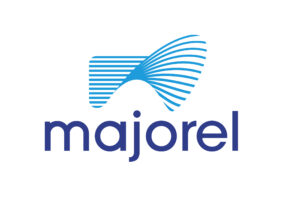A strong understanding of customer sentiments and predictions into customer buying behavior are two key factors that are crucial for marketing leaders to focus on to ensure better marketing ROI; Fara Haron, Regional CEO at Majorel shares some thoughts in this Martech Series QnA:
______
Tell us a little about yourself Fara…we’d love to hear about your role, a typical day at work?
As a regional CEO at Majorel, I oversee operations in North America, Ireland, South East Asia, United Kingdom, Kenya and India. From a global perspective, it’s a large scope, but we try to make it feel like one integrated team with a common culture, despite the various time zones. Due to the pandemic, my typical day has changed drastically over the last year. I went from visiting multiple countries on a weekly basis to working from my home office, which has been a major shift. My days start early – usually at 6:00 AM so that I can connect with my teams in Europe and Asia. I’ve found the days end up being longer because ad-hoc conversations no longer take place. Instead, all conversations are now scheduled in 30 minutes increments, which results in full days of video calls (something I’m sure many others can relate to as well).
Marketing Technology News: MarTech Interview with Vladimir Poletaev, Chief Marketing Officer of Generali Global Assistance
A few of your biggest learnings as CEO during the time of a pandemic?
I’ve recognized that people are much more resilient and flexible than imaginable. At the onset of the pandemic, many people couldn’t fathom a 100% work from home environment, especially in the BPO industry where individuals work very closely with team members. The idea that you can work as effectively at home was a concept people were simply uncomfortable with. But the pandemic proved it’s possible. The challenge then became keeping employees engaged and finding ways to promote teamwork in a new, virtual environment. You have to work extra hard to keep your teams engaged. It’s almost like starting from the ground up, but I’m very proud of my teams and the collaboration and resiliency they’ve showed.
Covid-19 has changed the game not just for the way businesses function today but also for online shoppers and consumers, as consumer demands change during this time and in future; what are a few methods you’d share to help companies scale efforts and reach their consumers where they are more successfully?
Covid-19 brought about many challenges related to customer demand and expectations. When shipments were delayed and postal services dealt with high volumes, customers became frustrated and their patience wore thin. Businesses had to adapt to different expectations and communicate transparently and proactively to their customers. Many big brands with strong digital presences were able to communicate effectively through their websites and social channels. However, the situation was very different for smaller businesses who lacked a robust presence on digital platforms. Many of these companies successfully built their brands by reaching out to customers directly via email or social platforms such as Instagram. Small and mid-sized businesses also collaborated and supported each other during the pandemic, often by re-posting content and creating community-wide visibility and support. This cross-promotion and collaboration helped many small businesses survive an unprecedented year.
What are some of the top customer service tips you’d advise brands and teams follow during this time, also, a few insights into the marketing technologies and sales technologies that they should be using to drive efforts here?
Brands should use technology that improves interactions with customers and facilitates better and faster communication. Chatbot technology, for example, proves useful because it delivers the quick, automated answers that customers want. As an added benefit, this approach helps brands save valuable time and frees up customer service representatives to focus on more complex customer issues. Brands should also leverage platforms for social listening and monitoring. By having a strong understanding of customer sentiment, brands can capture insights and better understand what is relevant to their customers.
What according to you does it take to create and build out a more proactive and seamless customer experience and customer journey in today’s always-on and digital selling / remote marketing world?
Delivering a proactive and seamless customer experience requires a personalized approach. By analyzing customer behavior you can proactively communicate and address potential issues. For example, if a customer calls about a problem they’re having and you already know the products they own, you can anticipate common issues. You can have solutions ready and also make personalized recommendations for other products that may fit their needs. For customers that you don’t have insights into, providing a personalized approach can be challenging, but it’s still possible. Even if you know where they’re located, you can stay abreast of what’s going on in that region and personalize your communications accordingly.
Take us through some of your most successful customer service plans and the tools that have helped drive best results over the years?
A successful customer service plan is one that takes the entire customer lifecycle into account. A holistic view of the customer is critical and brands should focus on addressing every single interaction throughout the customer journey. A robust CRM tool to track data is essential, and if you’re selling products, your order and inventory management tool needs to be sophisticated enough to see exactly where things are at any point in time. Lastly, it’s important to have the right analytics tool to help you gain valuable customer insights. For example, a sentiment tool that measures voice patterns and gauges customer satisfaction is extremely useful in helping brands design and deliver an excellent customer experience.
Marketing Technology News: MarTech Series Interview with Bichoï Bastha, Chief Revenue and Business Officer, Dailymotion

As a trusted long-term partner for customer engagement, Majorel serves customers across the world through 58,000+ employees based in 30 countries in Europe, the Middle East, Africa, Americas and Asia in 36 languages.
Fara Haron is the CEO North America, Ireland, Southeast Asia, United Kingdom, Kenya, and India & EVP Global Clients at Majorel. She leads a rapidly growing team of customer service professionals helping companies with their global customer service strategy, providing top-notch customer engagement to some of the world’s largest and most respected brands.
























